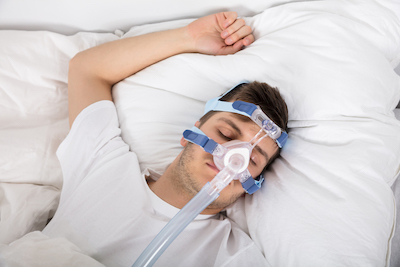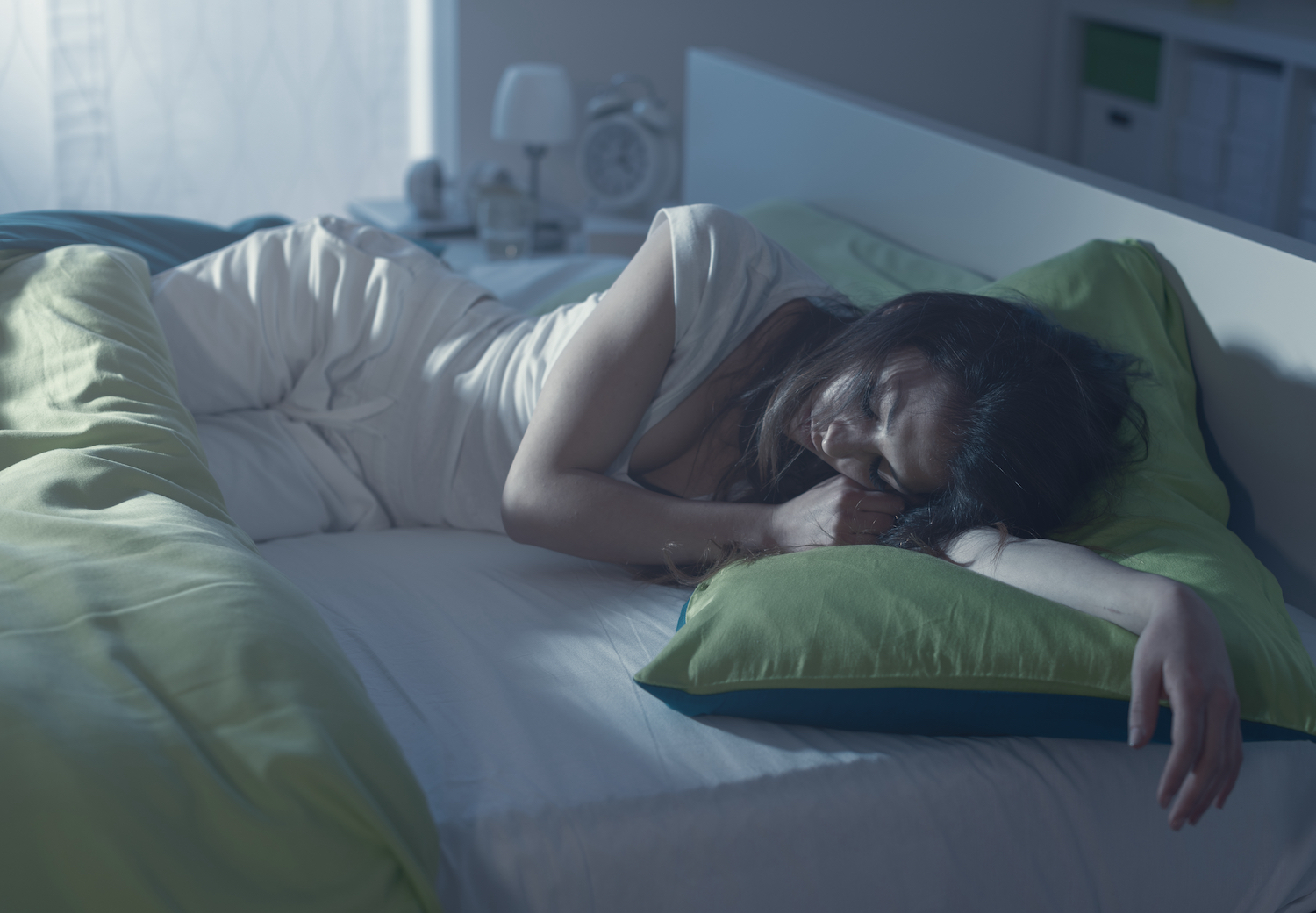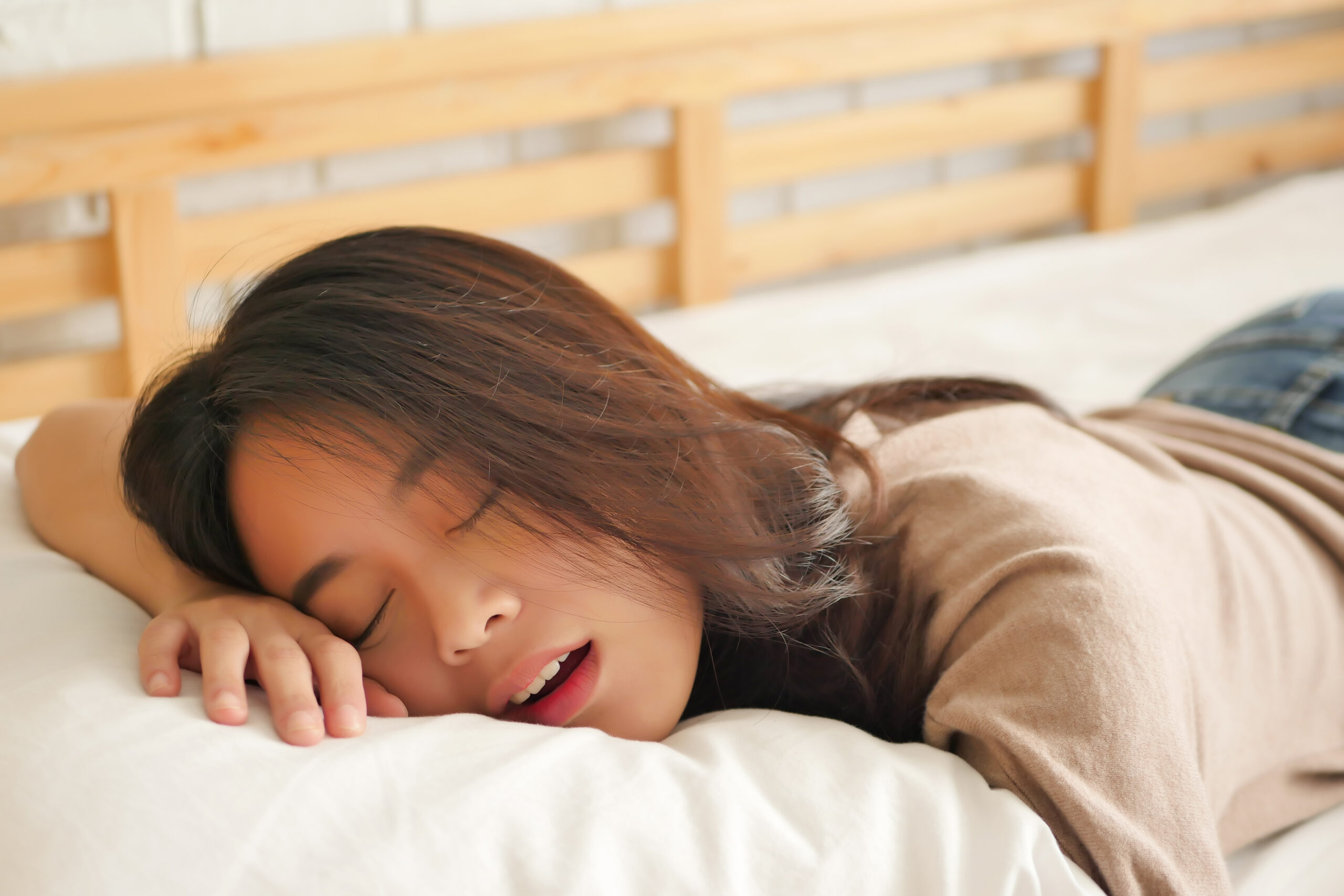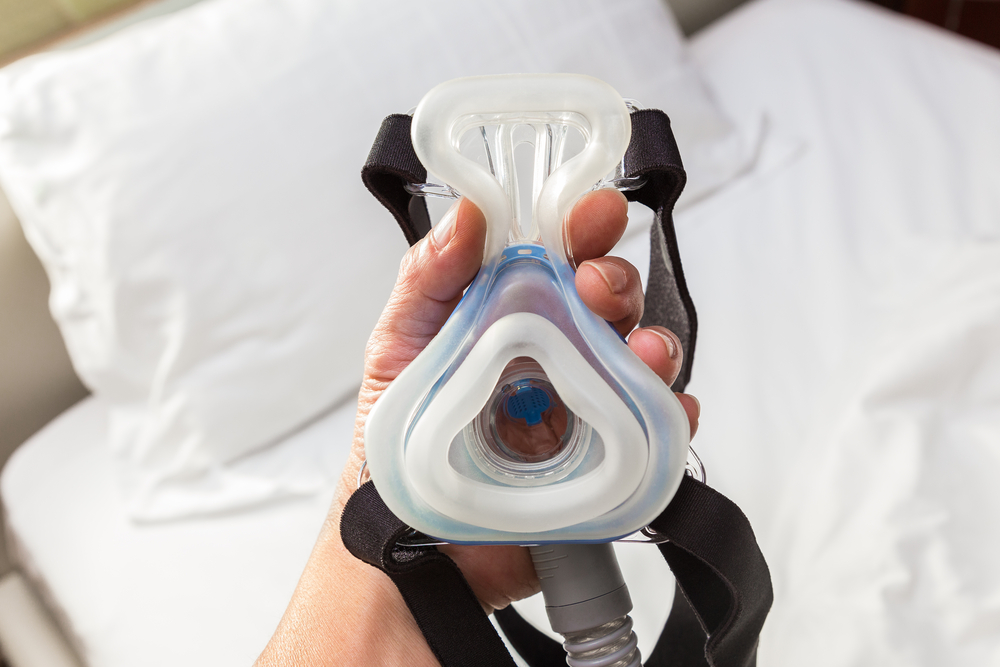Sleep is a state in which a person experiences slowed bodily processes along with minimal movement, and is minimally responsive to outside stimuli. Sleep differs from other conditions, such as a coma, in that it’s easy to snap out of.
Far from being a simple state of rest, we now understand that sleep involves multiple processes behind the scenes that are important to keep us functioning in day-to-day life. Sleep disorders such as sleep apnea don’t just make us feel tired the next day — they also have long-term consequences.
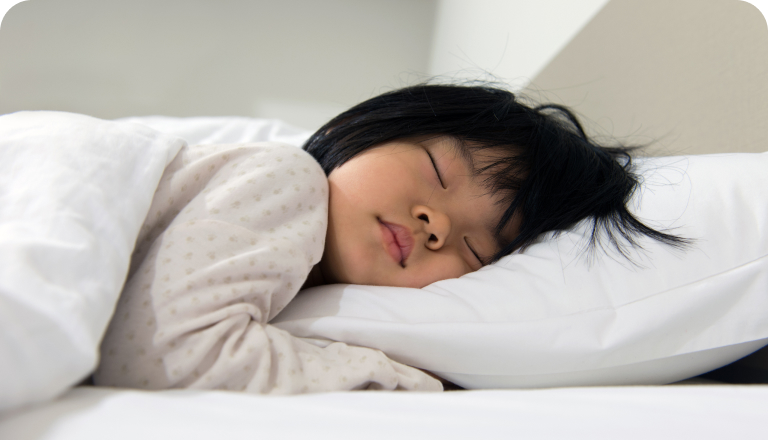
Why Do We Sleep?
There are many theories about why we sleep, although scientists haven’t yet pinpointed a single conclusive answer. What’s clear is that we need sleep, and we can’t function properly without it.
In addition to helping conserve energy, sleep is fundamental for repairing and restoring the brain and body. During sleep, the brain removes toxins, releases growth hormone, and repairs cells and muscles. Sleep also plays a role in learning, memory, and emotional regulation.
On a physical level, sleep is important for fighting infections, building muscle mass, and repairing cells and tissues. Sleep is also when growth hormone and sex hormones are released, which contribute to growth, development, and fertility. The immune system also benefits from a good night’s sleep.
How Sleep Works: The Stages of Sleep
Sleep is divided into four stages: stage 1, stage 2, stage 3, and rapid eye movement (REM) sleep. Stages 1, 2, and 3 are collectively referred to as non-rapid eye movement sleep (NREM). Each of the four stages is marked by certain characteristics, and to reap the full benefits of sleep you need to spend time in each sleep cycle.
During a typical night’s sleep, you cycle multiple times through all four stages. A full sleep cycle generally takes about an hour and a half to two hours, meaning you cycle through approximately four to six cycles per night.
- Stage 1: Stage 1 is the lightest stage of sleep and usually lasts just a few minutes. As you start to nod off, your brain waves and eye movements slow.
- Stage 2: During stage 2 sleep, your bodily processes continue to slow down and you become less responsive to outside stimuli. This sleep stage is believed to be crucial for memory consolidation. The average person spends more time in stage 2 sleep than in any other stage.
- Stage 3: Stage 3 is also known as deep sleep or slow-wave sleep. Breathing, heartbeat, and brain waves slow to their lowest rates. This is both the most restful sleep stage and the sleep stage when it’s hardest to wake someone. Young and middle-age adults spend about 10% to 20% of their total sleep time in deep sleep, which typically occurs in larger portions at the beginning of the night. Older adults often get less of this crucial sleep stage.
- Rapid eye movement (REM) sleep: REM sleep is the stage we often associate with dreaming, and it’s thought to play an important role in memory consolidation. During REM sleep, your closed eyes move frenetically and your brain wave patterns almost resemble waking brain activity. Breathing picks back up again, though your arms and legs are paralyzed in order to keep you from acting out your dreams. REM sleep occurs in larger stints when you’ve already been asleep for a while and most people spend just under a quarter of their total sleep time in REM.
The beginning of the night tends to contain more stage 3 slow-wave sleep, and the end of the night tends to contain more REM sleep.
How Much Sleep Do I Need?
The amount of sleep you need depends on your age as well as personal factors. An average adult typically needs 7 to 9 hours of sleep in a 24-hour period. Children need more sleep to support healthy brain and body development, and for young children, part of this sleep should be obtained through napping.
Recommendations for sleep needs by age can vary slightly depending on who you ask. We outline the recommendations from the National Sleep Foundation.
| Age | Recommended daily sleep, including naps |
|---|---|
| Newborn | 14-17 hours |
| Infant | 12-15 hours |
| Toddler | 11-14 hours |
| Preschooler | 10-13 hours |
| School-age | 9-11 hours |
| Teenager | 8-10 hours |
| Young adult | 7-9 hours |
| Adult | 7-9 hours |
| Older adult | 7-8 hours |
You may need more sleep during certain periods of your life, such as when you are recovering from an illness.
Sleep health remains just as important in older adulthood, although many people have trouble sleeping soundly as they age.
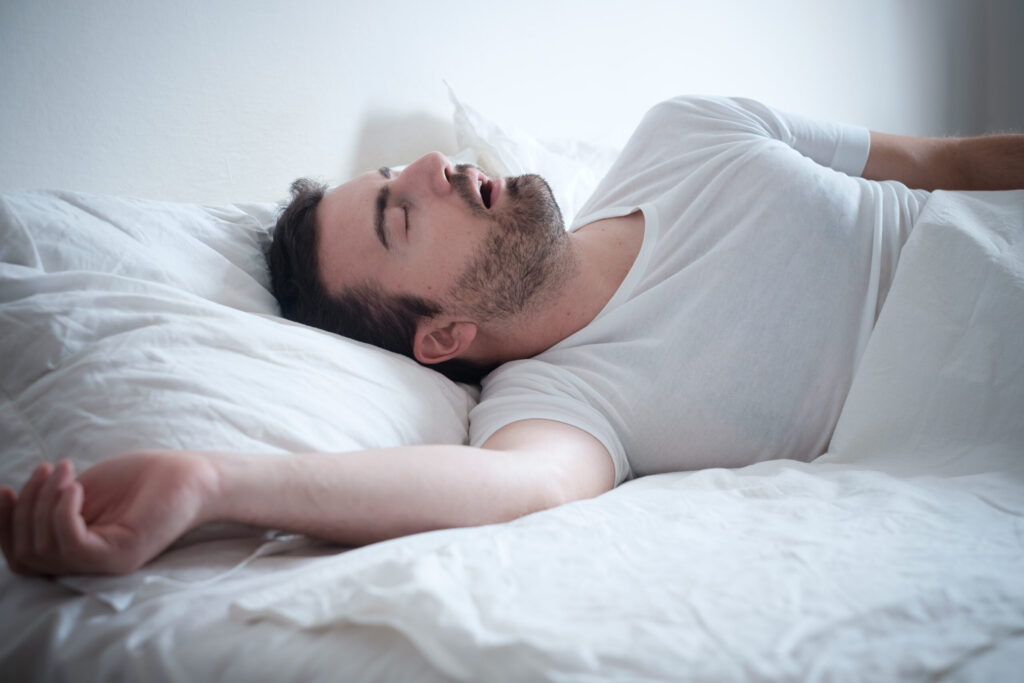
What Happens if I Don’t Get Enough Sleep?
Getting enough sleep refers both to the hours spent asleep as well as the quality of that sleep. Both insufficient and poor-quality sleep can contribute to health problems.
In the short term, missing sleep can cause trouble concentrating, difficulty remembering and learning new things, slower reaction times, and a heightened risk of accidents or bad decisions. You may have trouble waking up in the morning and feel hazy or sleepy during the day. Sleep loss can also make you feel irritable, anxious, or depressed, which may impact interpersonal relationships.
Poor sleep can take its toll on the immune system and leave you more vulnerable to infections such as the common cold or flu. Insufficient sleep can also interfere with hormones that control your appetite, making you crave junk food while also affecting your ability to control blood sugar levels.
Long-term sleep deprivation has been linked to a higher risk of high blood pressure, heart disease, stroke, obesity, type 2 diabetes, and kidney disease.
While catching up on sleep over the weekend can help, it’s usually not enough to compensate for sleeping the recommended amount each night.
How to Get a Good Night’s Sleep
To get a good night’s sleep, sleep experts recommend addressing your sleep hygiene practices. Sleep hygiene encompasses all the habits and behaviors that affect sleep, starting from when you get up in the morning to when you go to bed at night.
Productive sleep hygiene habits include:
- Getting plenty of natural light during the day
- Exercising regularly
- Waking up and going to bed at the same time every day, even on days off
- Creating a relaxing bedtime routine
- Keeping the bedroom comfortably cool, dark, and quiet
- Avoiding electronic devices such as smartphones, television, or computer screens in the leadup to bedtime
- Avoiding caffeine, nicotine, and alcohol at night
- If you’re having trouble falling asleep, get out of bed and do a relaxing activity until you feel sleepy
Sleep disorders can interfere with your ability to sleep well. If you have symptoms such as loud snoring or if you’re having trouble sleeping despite practicing healthy sleep hygiene, talk to your doctor about treatment options. They will ask about your symptoms and habits surrounding sleep, and may refer you for a sleep study in a laboratory or a home sleep test to help diagnose and treat any underlying conditions.
How Sleep Apnea Can Impact Your Sleep
Sleep apnea is a common sleep disorder that causes multiple episodes of slowed or stopped breathing during the night. These lapses in breathing can cause mini-awakenings or arousals, which is when you briefly transition from a deeper stage to a lighter stage of sleep. This interrupted sleep can cause many of the same symptoms as outright sleep deprivation.
Over the long term, sleep apnea has been linked to chronic health conditions. The frequent awakenings from this sleep disorder often mean you don’t get to spend enough time in deep sleep. Your heart doesn’t get the rest it needs from this sleep stage, which can lead to heart problems down the road.
Fortunately, there are several ways to treat sleep apnea. One of the most effective treatment options is continuous positive airway pressure (CPAP) therapy, which uses a machine to blow pressurized air into your throat, keeping the airway open so you can breathe normally. Other options include oral appliances and surgery to widen the airways and remove obstructions.


